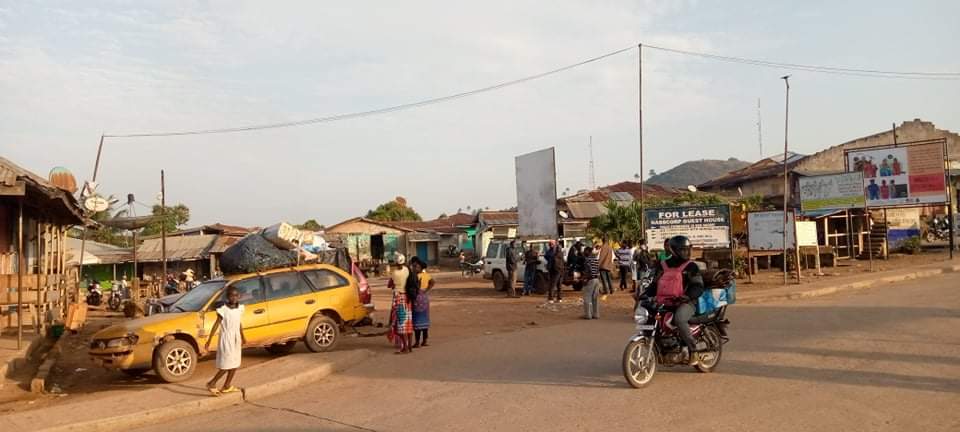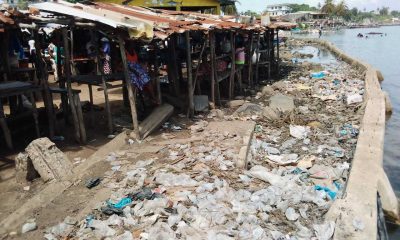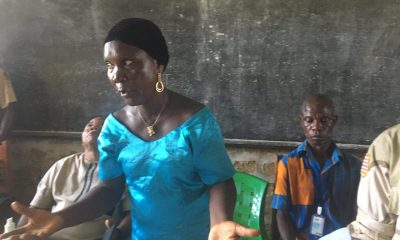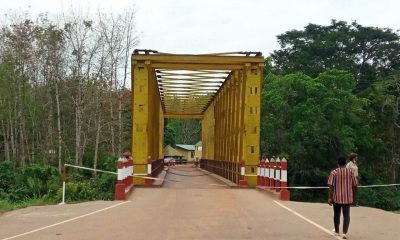
Monrovia – Since the declaration of a new outbreak of the Ebola virus disease by Guinean health authorities, a cross section of Liberians has been calling on the government to close land borders with neighbouring Guinea.
Report By: Rita Jlogbe, Inspires Health Reporting Fellow
On February 14, health authorities in Guinea declared Ebola Virus outbreak with three deaths and four active cases.
Many of those calling for the closure of the borders are from Lofa County – is one of Liberia’s 15 political subdivisions located in the north near the Guinea border.
The World Health Organisation record shows that Liberia’s first two confirmed cases of the 2014 Ebola outbreak were recorded in Lofa County on 30 March 2014, following the March 23, 2014 Ebola outbreak in Guinea. The county is also the second hardest hit county next to Montserrado.
Lorpu Gayflor, a social worker at a safe home in Voinjama, Lofa County, is afraid that if nothing is done immediately to close land borders with Guinea, there might be an outbreak in the country.
“It brings serious fear to my mind. I am very afraid because no distance between Guinea and Liberia, we are not safe” Gayflor said.
Gayflor said she knows that closing borders with Guinea will have some negative implications on the economy because, according to her, more people in the county are involved with cross border trade. But she said dwelling on that will expose the entire citizenry to danger.
An agriculturist in Lofa County, Bennoral Zayzay, 47, is pleading with the Government to put a halt to cross border trade with Guinea untill the crisis subsides. She also wants the Liberian government to equip health facilities — both private and public — with adequate medical supplies to be fully prepared to respond to any emergency.
“I’m very much afraid just by hearing this news because we know what Ebola did in Liberia the first time it came. If serious measure is not taken, Liberia will be swept away,” Zayzay said.
Zayzay said residents of the county have not recovered from previous scars left by the 2014 Ebola outbreak.

Many businesspeople in Voinjama , Lofa County often travel to Guinea for business purposes
Contrary to the views of others, John Sumo a resident of Voinjama and cross border trader, argues that closing the borders with Guinea will further “increase economic sufferings” for locals.
According to Sumo, more people are unemployed and surviving on their petty trade they do between Guinea and Liberia. He said since the government announced the distribution of food for the COVID-19 to help vulnerable families affected by COVID-19 pandemic, many people have not received their ration.
“I feel bad about this information. If it is true, I think the economic situation we really faced with now will increase in terms of hardship if the government close the border,” he said.
Meanwhile in Margibi County, Michael Freeman, a community leader, is worried that his community will be at risk if Liberia borders with Guinea are not closed.
“It is likely to spill over to Liberia. So, we are urging national government to do everything humanly possible. Even if they will close the borders, they should also beef up the security along those porous to make sure no one trespasses,” Freeman added.
Georgia Smith, a nurse at a health center in Margibi County, sees the outbreak in Guinea as a serious threat to health workers in Liberia.
Smith said at most health facilities in the country, health workers lack person protective equipment (PPEs) and other basic medical supplies to help them operate smoothly.
“As a health worker, hearing that outbreak is now in Guinea, we are little bit afraid,” she said. “We don’t have any instrument to work with in the various facilities, like PPEs, even medical supply we don’t have.”
Between 2014 and 2015, 10, 675 persons had contracted the virus in Liberia with 4,809 deaths, amongst the dead were scores of health workers. According to the World Health Organization, 375 health workers were infected and 189 lost their lives.
During that outbreak, Monrovia saw some of the most tragic deaths of patients on the hospital grounds, and dead bodies were sometimes not collected from neighborhoods for days.
Following news of the recent Ebola outbreak in Guinea, President George Weah mandated health authorities and related stakeholders of the sector to “heighten the country’s epi-surveillance”.
On February 16, the Government announced that the Ministry of Health and the National Public Health Institute of Liberia had dispatched epidemiologist to counties bordering Guinea. The move is to provide support for count health teams Grand Cape Mount, Gbarpolu, Bong, Lofa and Nimba Counties.
Minister Dr. Wilhelmina Jallah said that several teams of surveillance officers have been dispatched to the five counties.
“We have the county health officer, we have the district health officer, followed by the community which contains the chiefs, and all of the community people. So, these are the people that we want to be working with first.”
The surveillance team will begin observing “what’s happening in those counties” especially at the border with Guinea, she said.
Local Voices Liberia is a network of dedicated Liberian journalists based in the 15 counties working to lift the development concerns and progress of rural communities.


Methodology

True
The claim is rigorous and the content is demonstrably true.

Half True
The statement is correct, although it needs clarification additional information or context.

Unproven
Evidence publicly available neither proves nor disproves the claim. More research is needed.

Misleading
The statement contains correct data, but ignores very important elements or is mixed with incorrect data giving a different, inaccurate or false impression.

False
The claim is inaccurate according to the best evidence publicly available at this time.

Retraction
Upon further investigation of the claim, a different conclusion was determined leading to the removal of the initial determination.

Toxic
A rude, disrespectful, or unreasonable comment that is somewhat likely to make you leave a discussion or give up on sharing your perspective. Based on algorithmic detection of issues around toxicity, obscenity, threats, insults, and hate speech;
































































































































































































































































































































































































































































































































































































